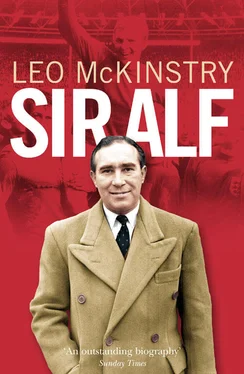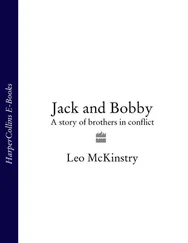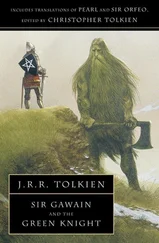I am, in addition, grateful to those journalists who gave me their views of Alf: Tony Garnett, Brian James, Ken Jones, David Lacey, Hugh McIlvanney, Colin Malam, Jeff Powell, Brian Scovell and Martin Tyler. I am especially indebted to Nigel Clarke, who knew Alf for more than 30 years and cowrote his column for the Daily Mirror in the eighties. Key figures at the FA during Alf’s reign, David Barber, Margaret Fuljames, Wilf McGuinness and Alan Odell, gave me many fascinating insights into Alf’s style of management, while I further benefited from speaking to Hubert Doggart, son of Graham Doggart, who chaired the FA committee that appointed Alf as England manager in 1962. Dr Neil Phillips, the national team doctor in the second half of Alf’s England career, could not have been more helpful with his advice and frank testimony.
Information about Alf’s early days in Dagenham was given by Cliff Anderson, George Baker, Jean Bixby, Phil Cairns, Charles Emery, Father Gerald Gosling, Pauline Gosling, Beattie Robbins, Joyce Rushbrook, Gladys Skinner and Tommy Sloan. Invaluable assistance about other aspects of Sir Alf’s life was provided by Terry Baker, Mary Bates, John Booth, Tommy Docherty, Anne Elsworthy, Peter Little, Margaret Lorenzo, Matthew Lorenzo, Bill Martin, Pat Millward, Tina Moore (widow of Bobby) and Bernard Sharpe.
Several experts were extremely generous in providing me with contact numbers and historical details: David Bull, author of an excellent life of Southampton stalwart Ted Bates; Rob Hadcraft, who wrote a fine study of Ipswich’s Championship-winning season in 1961-62; Kevin Palmer, amongst whose many works is a history of Spurs’ two titles in 1950-51 and 1960-61; and Andy Porter, who has an encyclopaedic knowledge of ex-professionals’ careers. Pat Godbold, still working at Ipswich after more than half a century, not only gave me an interview about her time as secretary to Alf but also helped with Ipswich contacts. Roy Prince, archivist with the Duke of Cornwall’s Light Infantry Association, shed some light on Sir Alf’s army career.
For all their help with other research material, I am grateful to staff at the BBC archives, the ITN archives, the British Newspaper Library, Southampton Central Reference Library, the Register of Births, Marriages and Deaths, the Probate Division, the Press Association, the library of the Daily Mail, Tottenham Hotspur FC, the Barking and Dagenham Record office at Valence House Museum, the Barking and Dagenham Recorder and the Football Association.
Lady Victoria Ramsey, Sir Alf’s widow, felt she could not co-operate with this book, though she did write to me expressing how devoted she was to her late husband.
I would like to thank Tom Whiting and Michael Doggart at HarperCollins for overseeing this project and giving me endless encouragement and support.
Finally, I owe a huge debt to my dear wife Elizabeth, who put up with the many, isolated months I spent in research and writing without complaint. I can never thank her enough for putting me on the path to becoming an author.
Leo McKinstry
Coggeshall, Essex, April 2006
15 May 1999. The ancient Suffolk church of St Mary-le-Tower in Ipswich had never previously held such a large or distinguished congregation. Three hundred mourners were crowded tightly on its polished wooden pews, while hundreds more lined the streets outside. England’s greatest living footballer, Sir Bobby Charlton, sat near the front, looking more sombre than ever. Alongside him were colleagues from the World Cup-winning team of 1966, including the bald, bespectacled Nobby Stiles, the flame-haired Alan Ball and Bobby’s own gangly brother Jack, who had left his Northumberland home at first light to attend the event.
They had gathered on a bright afternoon to pay their last respects at the memorial service of Sir Alfred Ernest Ramsey, the former England and Ipswich manager who had died at the end of April after a long illness. The venerable provincial setting was appropriate to the man whose life was being honoured, since modesty was one of the hallmarks of his personality. For all his success as both player and manager, for all his brilliance as a leader, he continually shunned the limelight and was uneasy with public adulation. The august Gothic expanse of Westminster Abbey or the classical grandeur of St Paul’s would not have suited a farewell for this least bombastic of men.
The personal qualities of Sir Alf were referred to throughout the service. Afterwards, outside the church, former players spoke of his loyalty, his essential decency and his strength of character. ‘He was an incredibly special manager. I just loved being with him, because I knew everything was straight down the line,’ said Alan Ball. ‘He was responsible for the greatest moment I had as a footballer and I will never forget or be able to thank him enough for that,’ said Jack Charlton.
In a moving eulogy, George Cohen, another of the 1966 Cup winners, described Ramsey as ‘not only a great football manager but a great Englishman’. Highlighting the way Sir Alf would stick by his players, Cohen gave the example of the occasion when Sir Alf refused to give in to pressure from FA officials to drop Nobby Stiles from the 1966 side after a disastrous challenge on the French player Jacques Simon. Though the tackle, according to Cohen, had been ‘so late Connex South East would have been embarrassed by it,’ Sir Alf supported Stiles to the hilt and even threatened to resign if the FA ordered him to change the team. In a voice cracking with emotion, Cohen continued: ‘Sir Alf established a strong bond with his players who stood before every other consideration. We all loved him very much indeed. What Alf created was a family that is still as strong today in feeling and belief as it was thirty-three years ago when we won the World Cup.’ Cohen then speculated as to how Alf might have reacted to such words of praise. ‘If he is looking down at this particular moment, he is probably thinking, “Yes, George, I think we have had quite enough of that.” Finally, Cohen turned in the direction of Sir Alf’s grieving widow, Lady Victoria. ‘Alf changed our lives, not just because of what we achieved with him but because our lives were richer for having known and played for him. He was an extraordinary man. Thank you for sharing him.’
Though the memorial service had been billed as ‘a celebration’ of Sir Alf’s life, it was inevitable that the day should also be wreathed in sadness at his loss. ‘I could not be more upset if he was family,’ said Sir Bobby Charlton. Big Ted Phillips, one of Ipswich’s strikers during Ramsey’s years at the Suffolk club, told me: ‘At Alf’s memorial service, I could not speak. There were tears rolling down my cheeks. They wanted me to say a few words, but I told them I couldn’t do it. Alf meant so much to me. He was a superb guy. He was unique. Under him at Ipswich, we were like a big family.’
Yet the sense of sorrow went much deeper than merely regret at the passing of one of England’s modern heroes. There was also a mixture of guilt, disappointment and anger that, during his lifetime, Sir Alf had never been accorded the recognition he deserved. He might have been the man who, in the words of Tony Blair, ‘gave this nation the greatest moment in our sporting history,’ but he was hardly treated as such by the football establishment. Throughout his career as England manager, many in the FA regarded him with suspicion or contempt. He was never given a winner’s medal for the 1966 World Cup victory, something that rankled with him right up to the moment of his death. His pay was always pitifully low, far worse than most First Division managers of his time, and when he was sacked in 1974, he was given only a meagre pension.
Читать дальше












